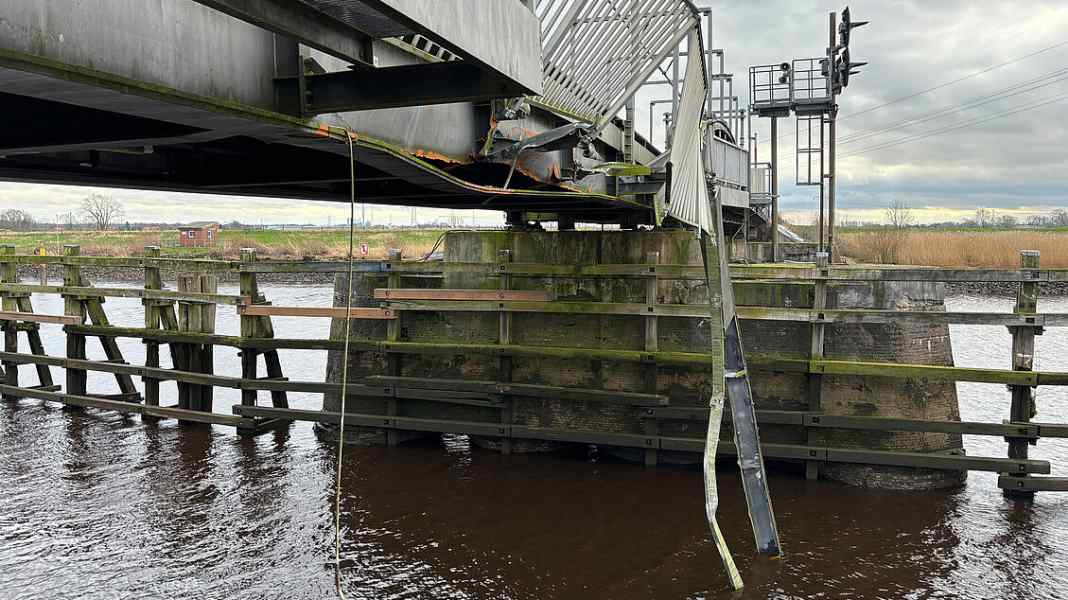
The Brake District Court sentenced the 32-year-old captain of the Dutch inland vessel "Rapida" to a fine of 5,000 euros. The fine is to be paid in 100 daily instalments of 50 euros each. The Dutchman had rammed the railway bridge over the Hunte near Elsfleth with his ship in February 2024, causing damage of around ten million euros. The judgement, which was handed down on Monday, is not yet legally binding. In her reasoning, the judge was convinced that the defendant had not used all necessary means available to him to prevent the collision.
Serious omissions on board
Several failings on the part of the captain were emphasised in the grounds for the verdict. For example, there had been no certificate of fitness to sail, the lookout had not been sufficiently manned and the crew on board had not had the prescribed composition of personnel. The public prosecutor's office also accused the skipper of travelling too fast at 16 kilometres per hour - the speed limit on the Hunte is only ten kilometres per hour.
The court found in the captain's favour that two gauges were displayed in the fairway at the point in question, but that the relevant one had weathered lettering and was not illuminated - unlike the one that was incorrectly read. Although the captain had overlooked a gauge that was not illuminated, he could have recognised it on the chart and detected it with a searchlight. The defendant's defence lawyer had argued that accidents had repeatedly occurred at this location in the past. The following July, for example, a ship collided with the temporary bridge that had been installed. The proceedings relating to this second accident have since been discontinued after the captain paid money to a charitable organisation.
Read also:
Economic consequences for the region
The railway bridge over the Hunte is of great importance for the ports on the left bank of the Weser, as they are dependent on the connection to freight transport. While other seaports in Lower Saxony increased their handling figures last year, these collapsed in the affected ports of Brake, Nordenham and Oldenburg. The closure had major economic consequences for the region. The ports spoke of millions in losses and saw jobs at risk because goods could no longer be transported on the railway line at times. Rail travellers had to switch to alternative means of transport.
Accelerated new construction planned
Following the two accidents, Deutsche Bahn wants to speed up the planned construction of the new railway bridge. Planning permission should be granted by the end of the year so that construction work can begin. The new revolving bridge is expected to go into operation at the end of 2027 or beginning of 2028. Until then, the restrictions on shipping traffic will have to be accepted. Deutsche Bahn rebuilt the temporary bridge after the second accident within a month, so that at least train services could be resumed.
